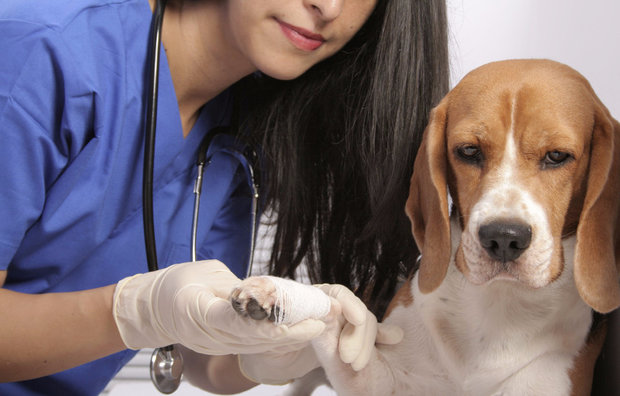Today Dr. Eliza Montgomery, a graduate of Animal Behavior college, Veterinary Assistant Program, shares his experience with us. “This is who you are, your calling.” – says Eliza. – “You either feel your calling, your mission in helping others, taking care of our smaller brothers, or not. The profession of a veterinarian is not to show off all the beautiful portfolios with photos of thoroughbred puppies from the exhibition. Picture on resume good or bad, whatever it is, it won’t make you a specialist, if it’s not within you. You must feel it with your own heart – and that’s exactly what your calling is.”
Any professional veterinarian knows how often to vaccinate a Beagle dog. A list of general vaccination rules has been developed to advice, give an understanding of the methodology and importance of the whole process.
Vaccination instructions
Vaccinations are required for small pets from the first months of their lives. Puppies’ health is vulnerable, constantly at risk. Each owner takes care of the pet from the beginning of his life, protects with vaccinations against infections. Thus, he also protects himself, because animal diseases have undesirable consequences for humans.
Note for the owner: when choosing a veterinary clinic for your pet, be sure to pay attention to the certification of the institution and specialist. A good professional veterinarian must provide a certificate of due form and, preferably, cover letters with referrals from previous places of work. https://resumesbot.com/veterinary-assistant-cover-letter-example/ – check here an example of such a cover letter.

Vaccination protects against:
- rabies;
- infectious hepatitis;
- plague leptospirosis;
- parvovirus enteritis;
- adenovirus;
- parainfluenza.
Dogs are vaccinated according to the standard scheme. The procedure is carried out for thoroughbred and mongrel dogs. Vaccination will help to avoid consequences; prudent owners are obliged to follow the rules of pet care. By following the rules of vaccination and the instructions of the veterinarian, it is possible to maintain the health of the pet. Vaccination helps strengthen the innate and acquired immunity of the puppy.
Pets are vaccinated three times before the age of one year. The first vaccine is given at 8-12 weeks. Revaccination – after 21 days. The rabies vaccine is given only once; the booster vaccine is given in a year. Another adult vaccination is given after a tooth change, then annually. Adults are vaccinated at the same interval once a year. The procedure is quick, painless, the dog does not suffer from discomfort. The process develops and strengthens the acquired immunity.
Vaccination Rules
According to the rules of vaccination, you can not vaccinate a sick dog. If the animal is sick at the time of vaccination, the vaccination is strictly prohibited because of the possibility of infection. In some cases, death is threatened. If such a situation arises, it is necessary to cure the animal, and after two weeks proceed with vaccination. If a stray dog is found outside, do not rush to vaccinate. Perhaps the animal is vaccinated. To find out reliably, check the blood for antibody levels.
Two weeks before vaccination, the pet is given anthelmintic drugs, cleansing and preparing the body. The pharmacist will tell you the dosage in the veterinary pharmacy. As a rule, a tablet is given per 10 kg of weight.
When the puppy is sick or injured, the vaccine is given after full recovery. After the puppy is transformed into a full-fledged adult, the animal is vaccinated annually. A visit to the veterinarian is required a week before the injection. The doctor examines the pet, checks the health. Note that the condition of the coat, the temperature will help the doctor prescribe the next vaccination.
